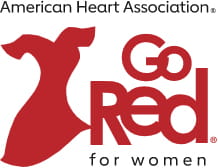Be your own advocate: Speak up for your heart health

Heart disease and stroke claim the life of a woman every 80 seconds.
Ninety percent of women have at least one risk factor for heart disease or stroke.
Women are less likely to survive their first heart attack.
You have most likely heard statistics like these before. But ask yourself: What would you do if you noticed sudden chest pain, dizziness, or nausea? Would you call 911 or shrug it off?
Despite increased awareness about heart disease, many women—and even doctors—still dismiss or misdiagnose its symptoms as stress or anxiety. A recent study confirms this, stating that 53 percent of young women with heart attack symptoms said that their health care provider did not think symptoms like stomach pain, shortness of breath, heart palpitations and nausea were heart-related. Only 37 percent of men felt the same.
In addition, a 2018 study published in the journal Proceedings of the National Academy of Sciences of the United States of America found that one in every 66 women who has a heart attack will die in the emergency department if she is treated by a male doctor instead of a female doctor.
Neither of these studies suggest that male cardiologists are less talented or qualified than female cardiologists. Instead, it suggests that we must do better and do more to educate health professionals and women about heart disease and how it presents differently in men and in women.
This means recognizing the symptoms of heart disease and stroke. It means knowing the risk factors for heart disease, from traditional risk factors like diabetes, smoking and obesity to women-specific risk factors like pre-eclampsia, gestational diabetes, early menopause, and inflammatory or autoimmune diseases. Women who have undergone radiation therapy for breast cancer treatment may also be at a greater risk for cardiac complications, including heart failure, valve disease, heart attack and high blood pressure.
And, perhaps most importantly, it means speaking up when you feel that your concerns are not being heard and your questions are not being answered. If you have the symptoms of heart disease or are concerned there is something wrong with your heart, do not let anybody dismiss these concerns or write your symptoms off as stress or anxiety without thorough and appropriate evaluation and testing.
While it is certainly the responsibility of doctors and other health care providers to recognize heart disease symptoms and provide an accurate diagnosis, there is something you can do to protect your heart: Be your own advocate.
We know that most women know and understand their bodies well and, therefore, are the first to recognize when something is not right. If you do not feel like your voice is being heard, do not think twice before seeking a second opinion—it could save your life. Find a provider who you trust, and who will take your symptoms and concerns seriously.
Always be your own advocate, and trust your gut when something does not feel right.

Main Line Health serves patients at hospitals and health centers throughout the western suburbs of Philadelphia. To schedule an appointment with a specialist at Main Line Health, call 1.866.CALL.MLH (225.5654).
 Content you want, delivered to your inbox
Content you want, delivered to your inbox
Want to get the latest health and wellness articles delivered right to your inbox?
Subscribe to the Well Ahead Newsletter.
